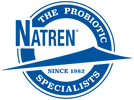We obviously talk a lot about probiotics here because probiotics are ALL that we do. But what exactly are probiotics anyway?
To start, it helps to understand that the world is populated by billions and billions of tiny microbes – or microscopic organisms. These microbes make up a large majority of larger life forms and have symbiotic relationships with plants, animals, and humans. Symbiotic literally means “together living” or a close and mutually beneficial relationship between two different species, in this case bacteria and humans.
There are actually 10 times more bacteria living on and within the human body than there are human cells. Yes, you read that right; your body contains more bacterial cells than human cells. We are made up of these microbes and we depend on their balance for survival. Probiotics are critical to helping us maintain this balance.
So What Exactly Is A Probiotic?
Probiotic is a term given to strains of bacteria that are beneficial to the human body. In Greek, probiotic means for-life. Probiotics are friendly bacteria that help your body thrive on many levels.
To qualify as a true probiotic, there are a few criteria a microorganism must meet based on current scientific understanding:
- The organism must be alive when administered.
- When administered in adequate amounts it provides a health benefit.
- The probiotic organism needs to be proven safe for human consumption.
Within these parameters, there are a wide variety of probiotic strains that can be beneficial to the human body including both those that are naturally occurring in the human body or nonnative human colonizers.
Probiotics are those bacteria that have a beneficial impact on the body. There are a lot of bacteria living on and in the body – so much that the weight of all this bacteria equals an average of over four pounds. To put that into perspective, the weight of bacteria on and in the human body is more than the heart and brain combined. It’s easy to see why the existence and balance of these bacteria– just like the heart and brain matter to overall health.
The most popular types of bacteria used for human consumption include Bifidobacteria and Lactobacilli species. These have been scientifically shown to benefit the balance of bacteria in the digestive system.
The most common mainstream usage of the term Probiotic applies to foods such as yogurt, and other fermented foods such as kimchi and sauerkraut. Historically, these were significant sources of probiotic bacteria for centuries and across many cultures; however it is important to note that modern day mass-produced equivalents of these functional foods do not offer the same benefits. For example, natural probiotic yogurt should just contain just milk and beneficial bacteria. If you look at the ingredients of many store-bought yogurts today, you will see a distressing list of refined sugars, preservatives and other additives, and no assurance of the viability of the probiotic bacteria. It is for this reason that we advise people not to be fooled into thinking they have their probiotic intake covered because they buy a pack of supermarket yogurt every week – and instead they should consider a daily probiotic supplement such as Natren Healthy Trinity that will guarantee a useful amount of beneficial bacteria to help keep the digestive system functioning optimally.
The post What Are Probiotics Anyway? appeared first on Natren Probiotics Blog.




0 comments